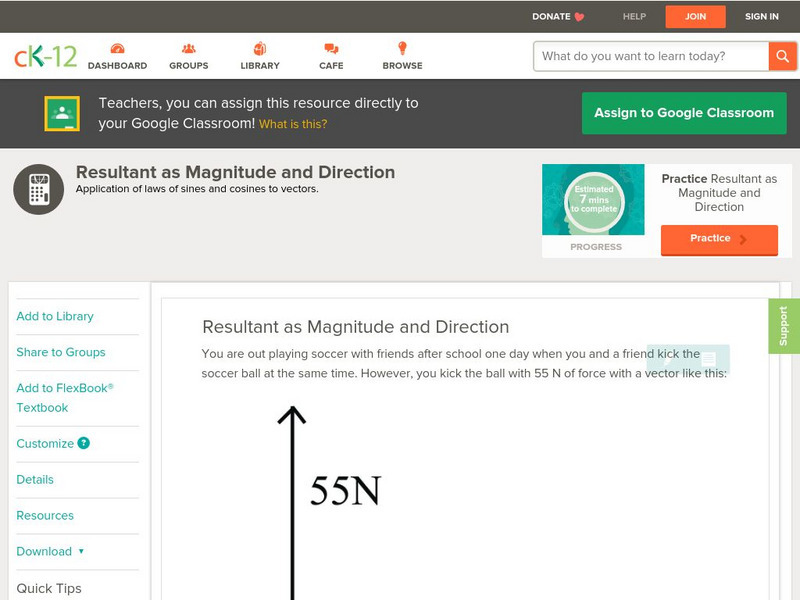Curated OER
How Big Is That Star?
Aspiring astronomers study stars. They compare stars and explain the relationship between radius, mass, and diameter. By creating a star simulation, they discover how a binary star system's orbit can cause changes in the observed...
Curated OER
Typical Numeric Questions for Physics I - Motion
Seven pages with 33 multiple choice questions about motion make up this worksheet. Calculations must be performed in order to choose the correct answer. Physics majors will solve for angles, displacement, acceleration, speed, and time...
Curated OER
Geometry Worksheet 9.5: Rotational Symmetry
In this rotational symmetry worksheet, high schoolers solve 14 short answer and graphing problems. Students identify the order and magnitude of given figures. High schoolers find the scale factor of a dilation given a graph.
Curated OER
NUMB3RS Activity: Where’s the Source? Episode: “Undercurrents”
Several real-world problems are posed as a way to learn about vector fields in order to make some predictions after analyzing the data. The main problem comes from the tv show NUMB3RS and is based on solving a crime where a body has...
Curated OER
Visualizing Vectors
Investigate vectors in standard positions and use the CellSheet application on the TI calculator to find the sum of two vectors. Convert from polar to rectangular coordinates and vice versa, and show graphs of the vectors.
Curated OER
Vectors: Follow That Arrow
Vectors and their connection to motion. A video will be presented to provide information for the class to use methods of solving vectors with and without grids. Real-world physical concepts will be explored in reference to vectors.
Curated OER
Vector Investigation: Car Storm Chaser
Students investigate the relationship between vectors and motion. In this geometry instructional activity, students create a system that exemplifies the principles of motion. They solve for the acceleration, velocity and displacement.
Curated OER
Adopt a Constellation
Students adopt a constellation and find detailed information about their constellation. In this constellation lesson plan, students use the web to find information about a constellation of their choice. They identify the history of the...
Curated OER
Earthquake Power
In this earthquakes worksheet, students learn about the measurements of earthquakes on the Richter scale. They answer six questions about the magnitudes and sizes of earthquakes using two tables of data about earthquakes and the Richter...
Curated OER
Vectors
In this vectors worksheet, 10th graders solve and complete 7 various types of problems related to vectors. First, they find the third side and the angle labeled in each right triangle. Then, students resolve each of the vectors into its...
Curated OER
Earthquake City!
Students construct small cities made of sugar cubes, bullion cubes, and gelatin cubes. They experiment with the cubes in order to determine which materials hold up the best against a simulated earthquake. Students explain how...
Curated OER
Magnitude of the Richter Scale
Students examine how a Richter scale operates. They create a booklet illustrating each rating on the scale. They discover how engineers use different measurement tools.
Curated OER
Vectors
Pupils use both magnitude and direction to locate a place. They use locating techniques to make a temperature field of their classroom.
Sophia Learning
Sophia: Distance & Displacement
A video tutorial and slide show lesson explains the similarities and differences between distance and displacement. [3:11]
Physics Classroom
The Physics Classroom: Vectors and Projectiles: Vector Direction
Through a short informational reading piece and an animated visual, students learn that vectors represent both magnitude and direction.
CK-12 Foundation
Ck 12: Trigonometry: Resultant as Magnitude and Direction
[Free Registration/Login may be required to access all resource tools.] Express vectors in magnitude and direction form.

















